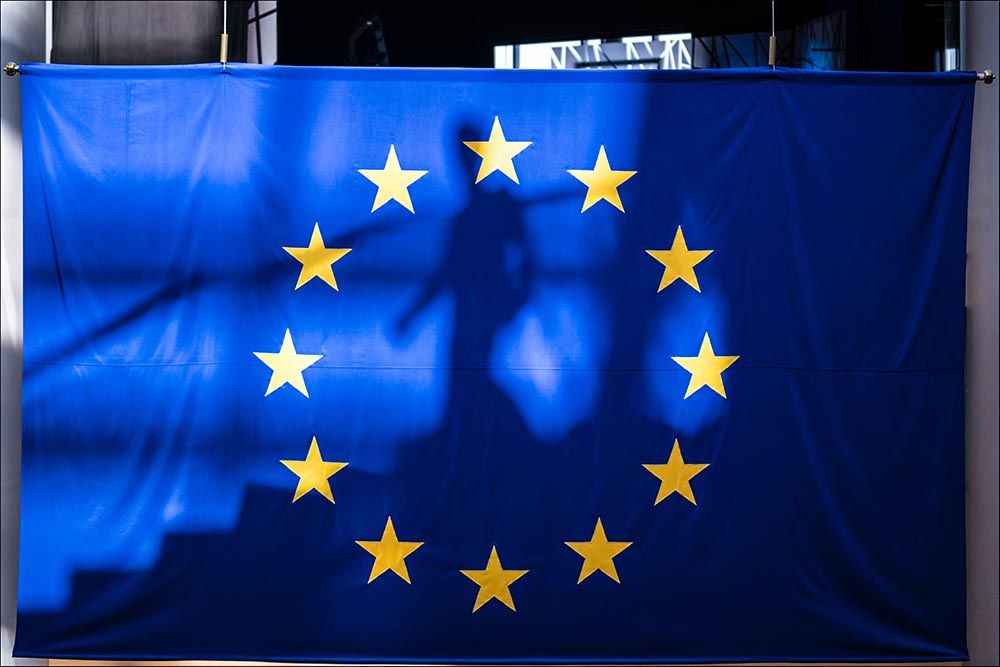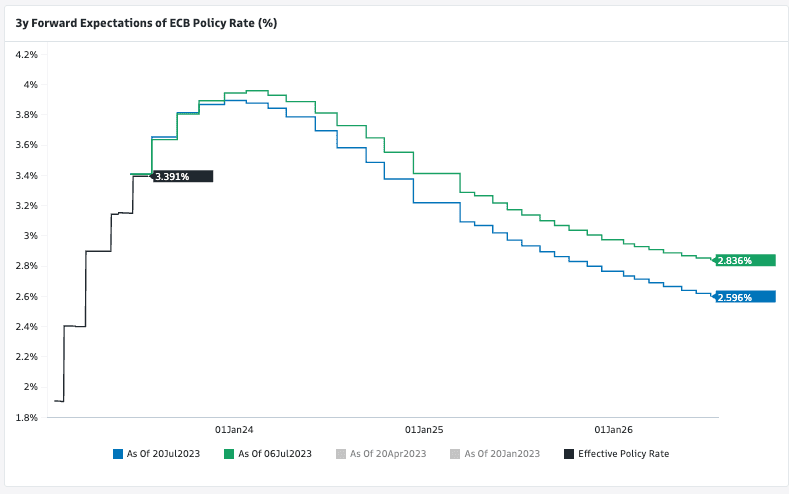Euro: ECB To Surprise With Hike Despite Recessionary Conditions says ING
- Written by: Gary Howes
-

Image © European Union - European Parliament.
Markets see less than a 50% chance of an interest rate hike from the European Central Bank (ECB) next week, an expectation that has to some extent facilitated recent weakness in the Euro.
But economists at ING Bank, the Dutch-based lender and investment bank, see one more interest rate hike coming this September, a move that could potentially boost the Euro given current market expectations for rates to be held unchanged.
"We admit that it is a very close call, but still too high inflation, a focus on actual rather than on predicted developments, and the fear of stopping prematurely will tilt the balance towards a final rate hike next week," says Carsten Brzeski, Global Head of Macro at ING Bank.
The economist acknowledges the uncertainty surrounding the decision given the conflicting messages coming from the economy: on the one hand inflation remains far too high but on the other, economic activity is clearly slowing sharply.
"Plunging sentiment indicators since the July meeting suggest that the eurozone economy is losing steam quickly. Falling demand for new loans, both by households and corporates, doesn’t bode well for future activity. The recession risk is back," says Brzeski.
He adds that the ECB might also be inclined to let the impact of 425 basis points worth of interest rate hikes work through and make their impact felt.
"Buying some time to assess how the rate hikes so far will play out would be the main theme," says Brzeski.
But headline inflation remains too high for a central bank that is now strictly data-dependent and the recent uptick in oil prices could possibly push the ECB's economists into raising inflation forecasts again.
Above: Market pricing shows the ECB is close to the peak of the cycle, image courtesy of Goldman Sachs.
Eurozone wage growth is also running at 5.0%, which is consistent with the sticky inflation levels the ECB fears.
"The experience of the last year has shown that the ECB has been sticking to its stance of putting more emphasis on actual data rather than on expected data, and still sees a higher risk of stopping tightening too early rather than going too far," says Brzeski.
"For the hawks, the risk might be too high that a pause could actually transform into an actual full stop later this year," he adds.
ING expects one more interest rate hike, although they anticipate the ECB will also be keen to avoid calling it a final move, something that could bolster rate cut expectations and ultimately undermine the impact of the hike.
Therefore, if ING's call is correct, the Euro could find itself bid on Thursday when the decision and guidance are released.


